Time for a proactive re-thinking of the Japan-US Alliance
(This is a condensed version of the corresponding Japanese article.)
A closed Japan-US Dialogue was held on the morning of Friday September 3, and it was followed by an open session in the afternoon titled, "The US Presidential Election and Japan-US Security Cooperation in Northeast Asia."
A welcoming address was provided by Yasushi Kudo, president of The Genron NPO, where he explained that these talks were being held to allow representatives from the two allies to discuss how to manage risks in the region. The talks also offer a forum to discuss the current political situation in which the leaders of both countries will soon be stepping down and how that could affect Japan-US cooperation in the region and around the world.
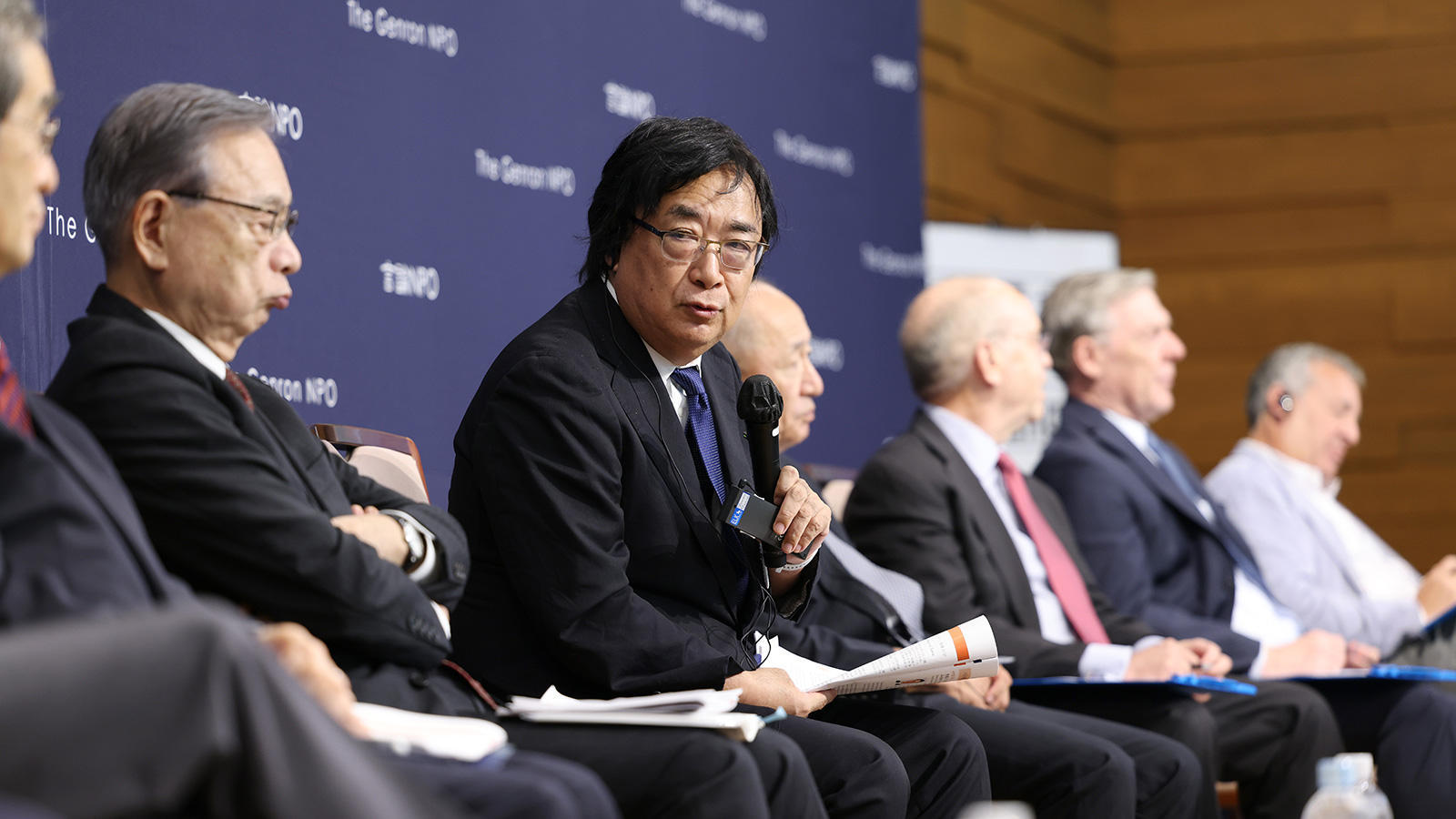
New challenges on the horizon
The former 29th Chief of US Naval Operations, Gary Roughead, joined the session online to provide a keynote address from the US perspective. He began by explaining that foreign policy and security issues will not be major issues in the upcoming US election, and any discussions will focus on Ukraine, Gaza, and technological and trade problems with China.
Roughead expressed some concern about what will happen in early 2025 as the new administrations in Japan and the US take over, noting that the current processes in place for managing Chinese and North Korean escalation are insufficient. He worries that if this election results in the same chaotic aftermath of the previous election, their adversaries may see it as an opportunity to put the US to the test.
Roughead said that while the Japan-US alliance will be discussed after the elections are over, he praised the efforts of both President Biden and Prime Minister Kishida to keep it as good as it is.
Roughead concluded his address by noting that efforts to maintain supply chain stability will be key to keeping the region peaceful and stable, and that while the Japan-US relationship is in a good state, there is always more work that needs to be done.
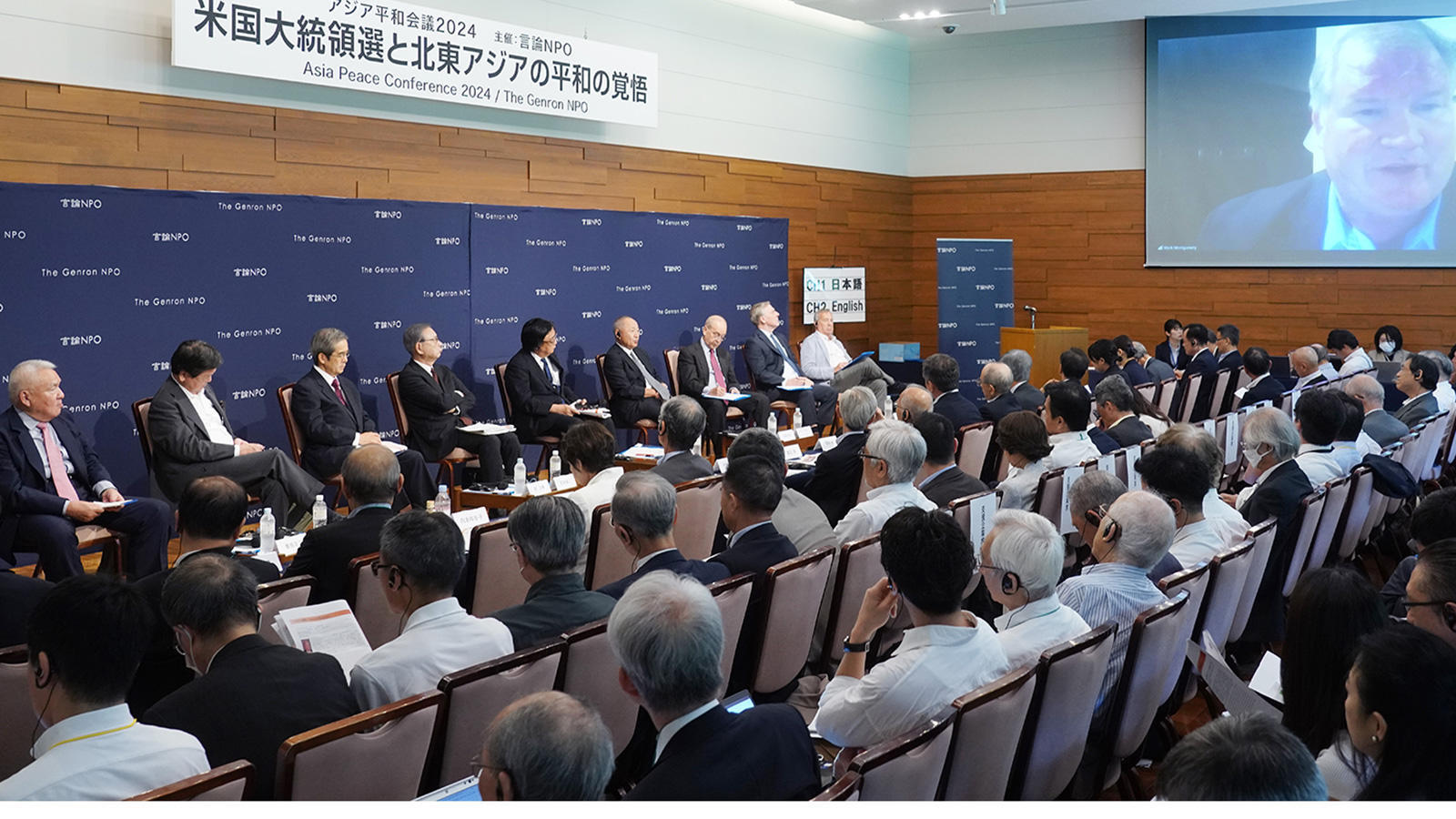
Joint Forces Command has difficulties ahead, and the government must act in accordance with the concerns of those on the ground
Former Commander of Japan's Self-Defense Fleet Yoji Koda provided the next address. He expressed pride in how the Japan-US alliance has progressed since the Security Treaty was revised in 1960, but warned that a crisis is emerging.
"Democracy and freedom are the values that Japan and the US must continue to share as we move forward with our alliance. However, although American democracy has long served as a model for Japan, it seems to be crumbling. From a Japanese perspective, that is worrying," he said.
Koda also pointed out a few issues that currently exist within the alliance, criticizing the move to a Joint Forces Command. He emphasized that were it to include the Republic of Korea as well it would face even greater difficulty, and called for the government to take great care in coordinating this effort and "listen to the concerns of those on the ground."
The Japan-US alliance is essential to the stability of the Indo-Pacific, as is continued cooperation
The second representative from the US to give a keynote address was Daniel Russel, former US Assistant Secretary of State, and a Vice President at the Asia Society Policy Institute. He began by stating that the Japan-US alliance is the cornerstone of stability in the Indo-Pacific, and that it is more than just a military alliance. He described it as a remarkably resilient international partnership built upon shared democratic values, deep economic ties, and mutual strategic security interests. He noted that the alliance remained strong even in the past when there were dramatic differences in leadership styles and values.
Russel described the various risk factors that could pose significant threats to regional stability and affect both Japanese and US interests, pointing to North Korea's nuclear weapon capabilities, Chinese aggressions in the South and East China Seas, and the expanding relationships Russia is building with both China and North Korea. He emphasized that Japan and the US must work closely together on a security strategy focused on deterrence, defense, and diplomacy, and that to meet these challenges, the two countries should maintain a strong joint military capability alongside active diplomatic, technological, and economic efforts. He also addressed China's aggressive stance toward Taiwan and its broader ambitions for the region, suggesting that its closer cooperation with Russia as requiring a coordinated strategy between Japan and the US.
He called for a deeper Japan-US alliance, and added that there should also be more cooperation with the ROK as well, along with the construction of a wider network for cooperation with Australia, the Philippines, India, Vietnam, and other regional partners.
Russel concluded by reiterating his point that the Japan-US alliance is essential to stability in the Indo-Pacific.
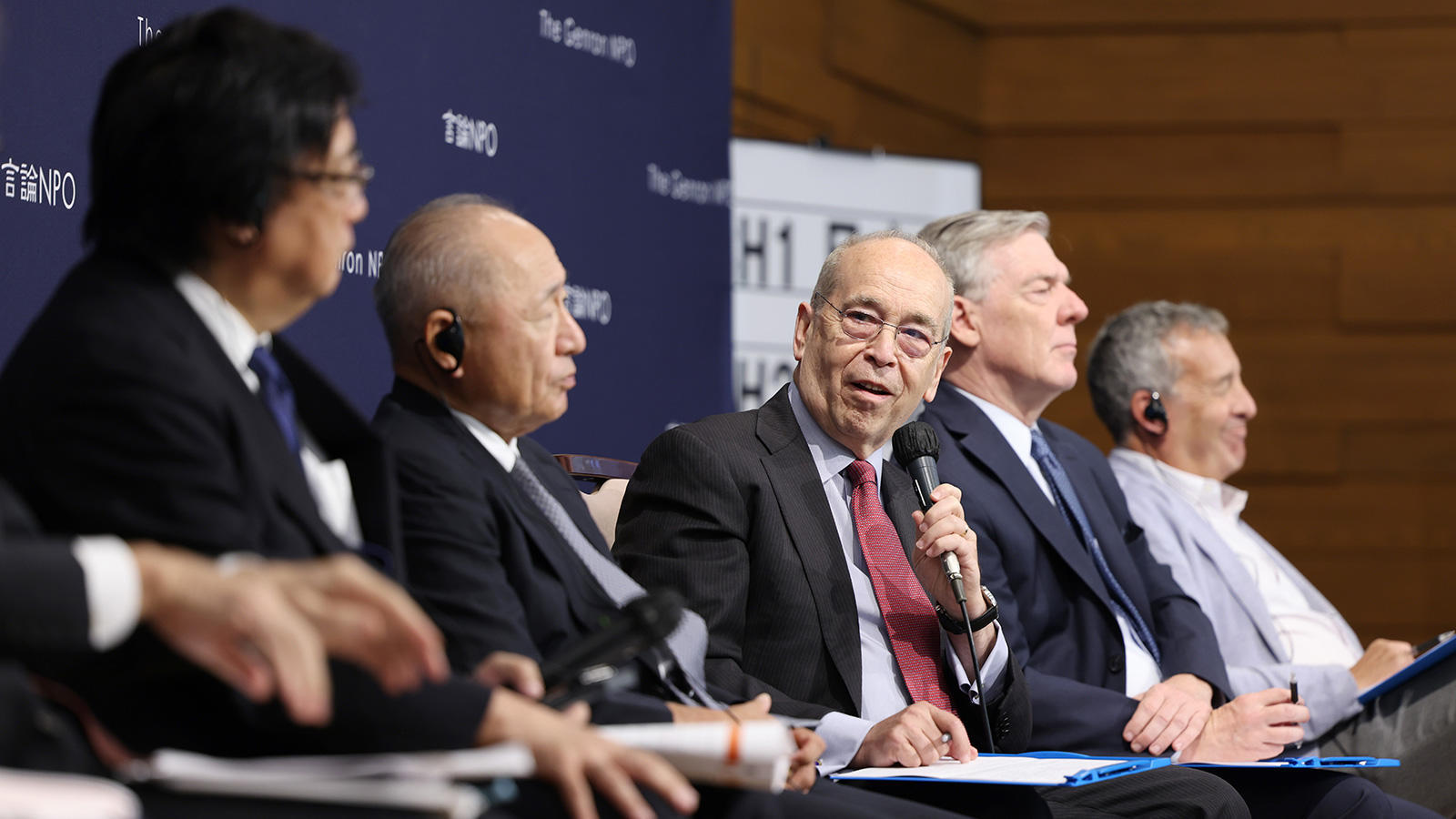
The US needs to understand how it is seen by the world, and Japan must remain aware of the differences between the two countries
Hitoshi Tanaka is a Special Advisor to the Institute for International Strategy at the Japan Research Institute and former Deputy Minister for Foreign Affairs, and he provided the second address from a Japanese participant.
Tanaka began by explaining that the world is paying close attention to the upcoming US presidential election, but rather than watching who will become president, it will be watching the election process itself.
"I want the US to understand how it is seen by the rest of the world," he said. "I want the US to show the world that it will protect the rules of democracy and that it will not be divided."
Tanaka moved on to the issue of Japan-US relations, warning that the creation of a Joint Force Command will highlight gaps in the capabilities of the two countries, pointing to the US' ability to launch pre-emptive strikes, something Japanese forces lack. He added that Japan should carefully consider how it will be able to cooperate in such an effort considering the constraints it faces.
Tanaka also spoke about relations with China, saying, "The US is working on deterrence, and while Japan must also do so, it is not enough. Japan must engage with China on the many common interests we have: our economies, food and energy, population issues, and dealing with North Korea's nuclear weapons. If bilateral talks are difficult to hold, multilateral talks should be pursued."
He concluded with a recommendation: diplomatic efforts should be conducted in a way that encourages change in China.
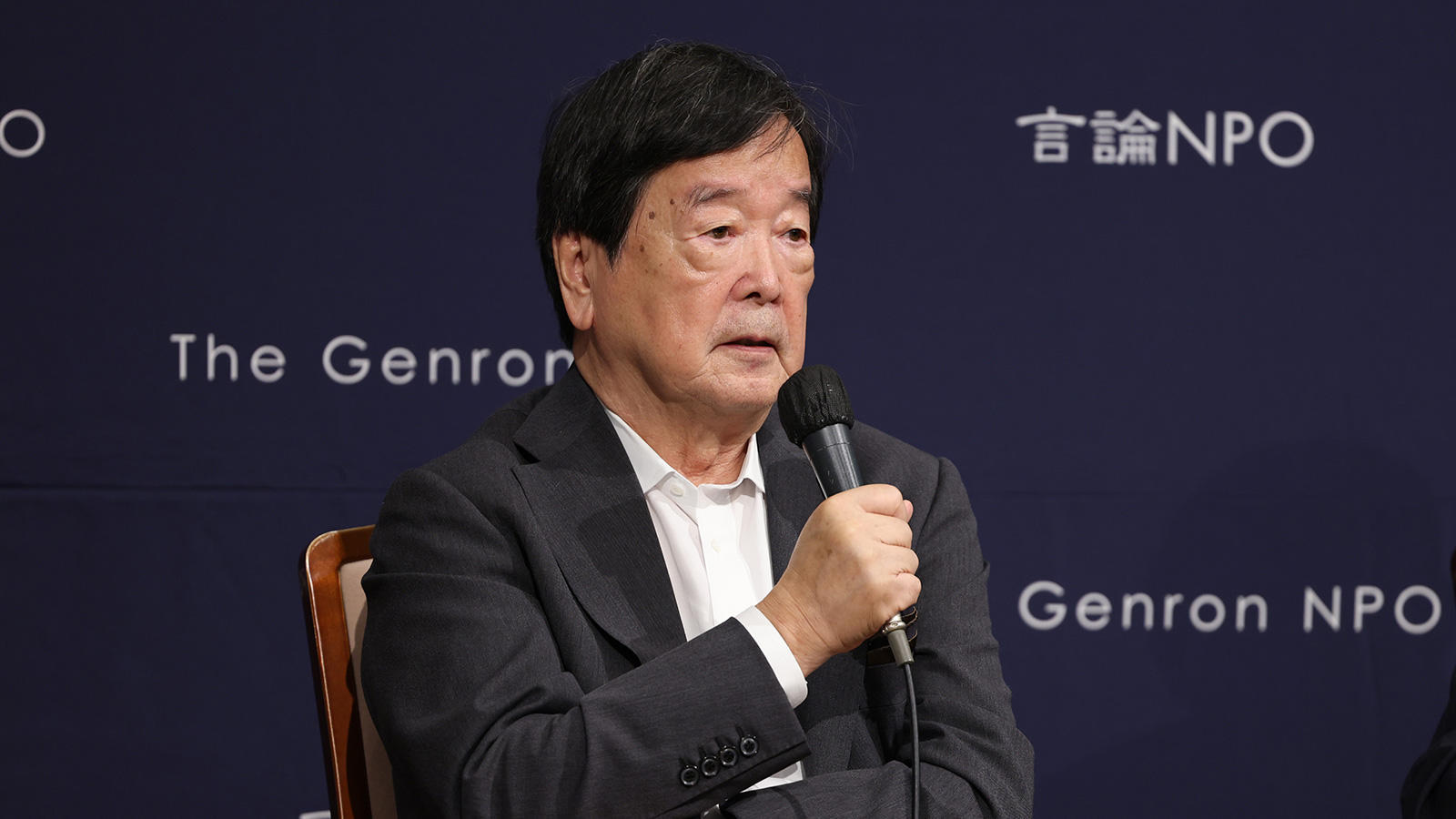
A Trump re-election will not weaken the Japan-US alliance, but effort will be needed. Japan should take the lead in free trade.
Following the keynote addresses, participants engaged in discussion led by Kudo, who asked the panelists to provide their thoughts on the Joint Forces Command plan and promoting Japan-US-ROK cooperation.
Former Vice-Minister of Defense Masanori Nishi responded, saying, "The Joint Forces Command will actually have two headquarters with operational command authority over the armed forces, which will place an enormous burden on the US. It is much simpler for Japan. That is why Japan should lead the creation of concrete plans."
Nishi concluded by stating his belief that because the US also understands the importance of the Japan-US alliance, the plan to strengthen it will remain unchanged regardless of the results of the election.
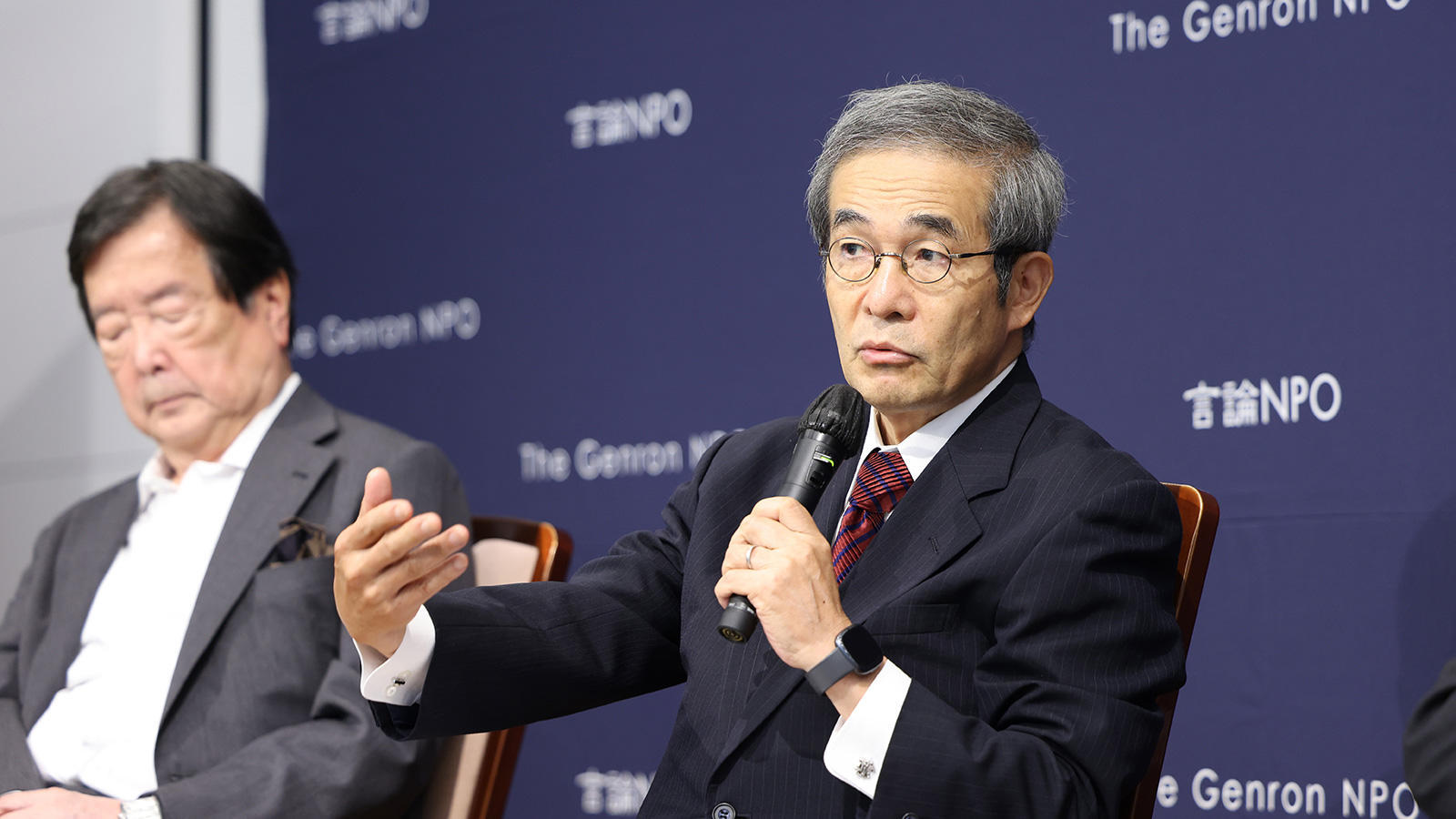
Christopher Johnston is Senior Advisor and Japan Chair at the Center for Strategic and International Studies. He described the Japan-US alliance as currently being in a good state, and predicted that it would not structurally change even with the change in leadership. He believes that cooperative efforts to deal with China and North Korea will remain solid as well, but as both major parties in the US advocate for more protectionist policies, Johnston said it will be up to Japan to take the lead in promoting free trade initiatives like the TPP.
Former Chief of Staff of the SDF Joint Staff Office Katsutoshi Kawano agreed that the results of the election will have a negligible effect on the alliance. But after he noted that there could be some difficulties, Koda interjected to add that careful coordination between Japan and the US will be necessary.
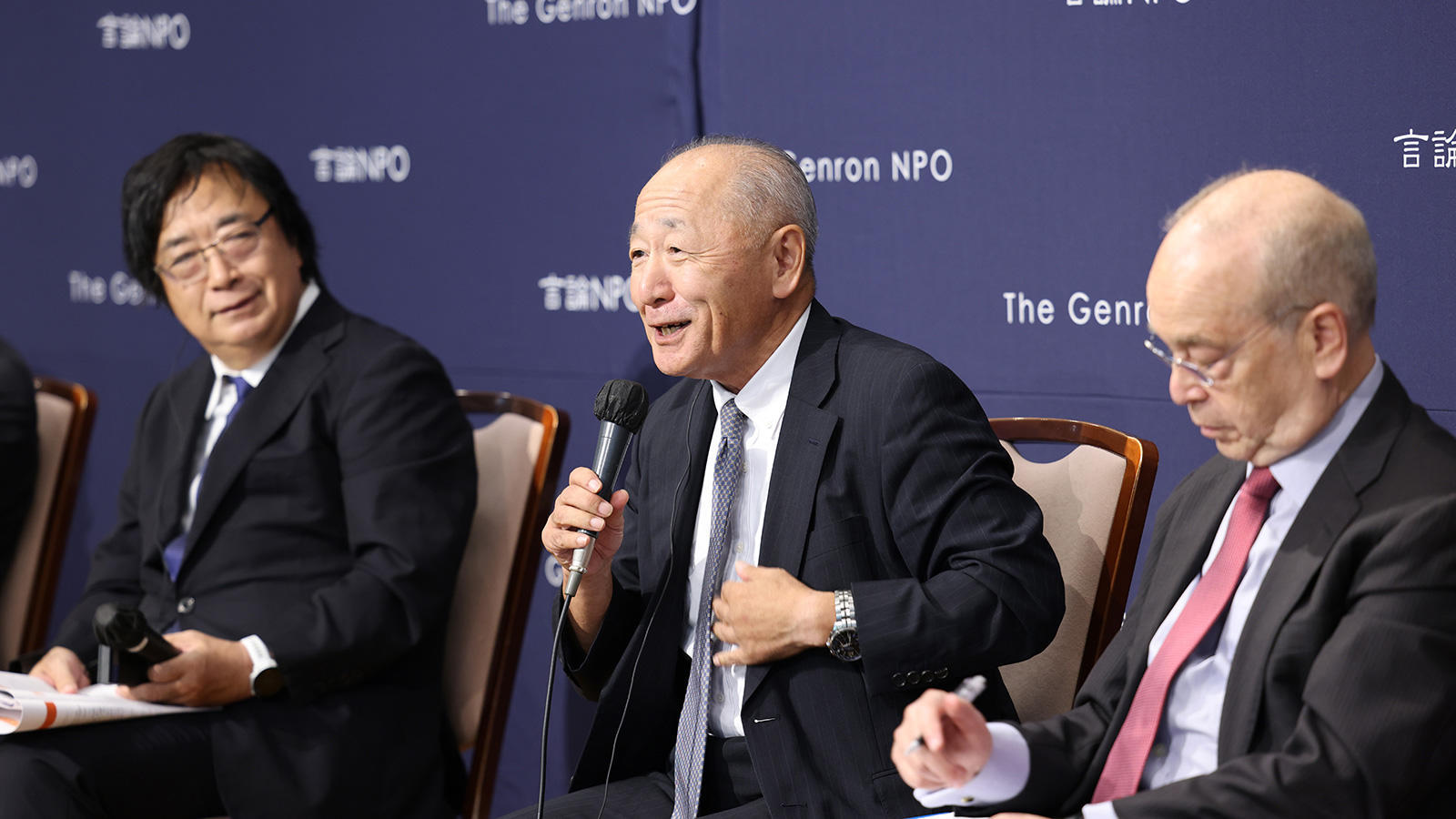
Mark Montgomery was previously Policy Director for the Senate Armed Services Committee and participated in the dialogue online. He mentioned that there are new challenges to be faced, pointing to the need for cybersecurity defense of critical infrastructure. Considering that China is intensifying its attacks on US government, military, and important infrastructure targets with its Advanced Persistent Threat group, Montgomery believes that the Japan-US alliance needs to fortify its efforts in such new areas.
Former Ambassador to China Yuji Miyamoto expressed his belief that a Trump re-election will result in decreased US involvement in Northeast Asia, which "could lead to unrest."
However, he added that since a second Trump administration will only last four years, it should be possible to contain negative elements and mitigate the impact.
"There are many people in the US who are also concerned, so we should collaborate with them," he said.
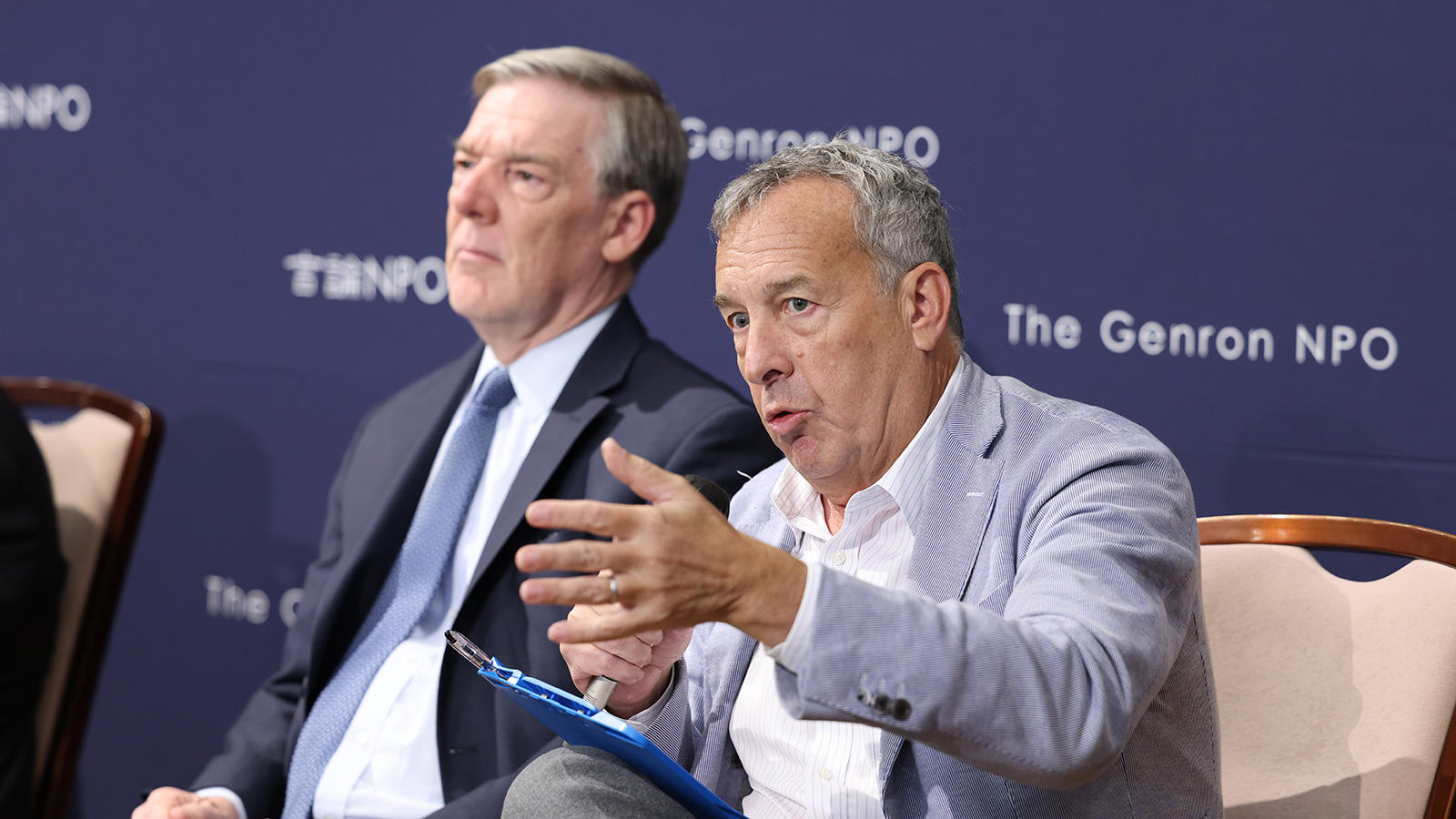
Economic relations remain important even amid division - managing the problems is the challenge for Japan, the US, and the EU
Kudo asked the panelists whether Japan, which is currently taking a path focused on international cooperation, should work with the US as it builds a global network to contain China, or whether it should form its own position.
One of those who responded to this was Brad Glosserman, Senior Adviser at the Pacific Forum CSIS, and visiting professor and deputy director at the Tama University Center for Rule Making Strategies. He suggested that China's motives must be carefully analyzed, and there will be a need to change the nature of the regional partnerships.
How to build an equal and constructive alliance between Japan and the US
Kudo brought the discussion to a close by offering his opinion that the world has entered a phase in which the Japan-US alliance needs to be actively re-defined. He posed a final question to those gathered, saying, "Japan must continue forward with international cooperation, but it needs to decide just how it will align itself with the US."
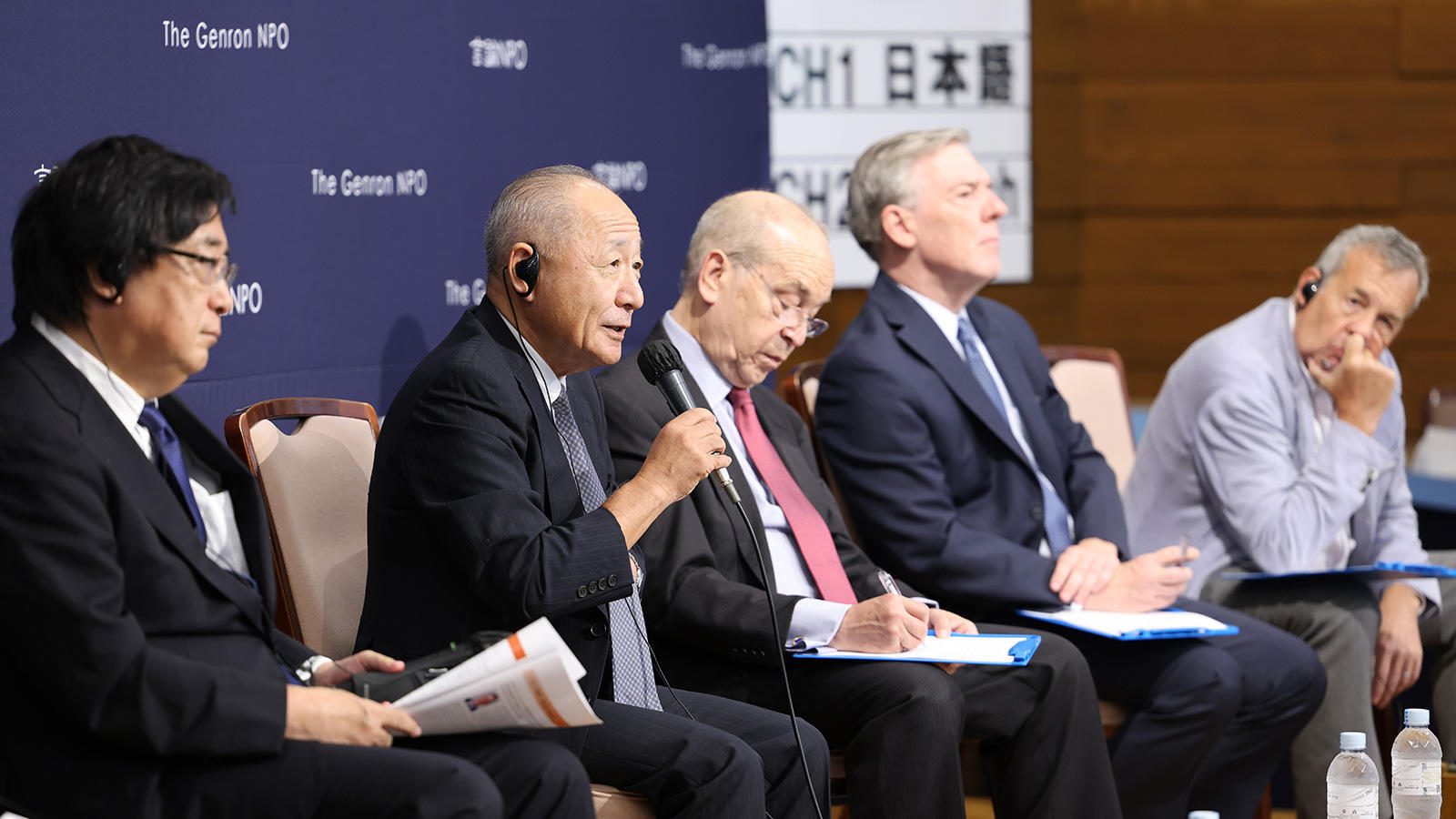
Post a comment